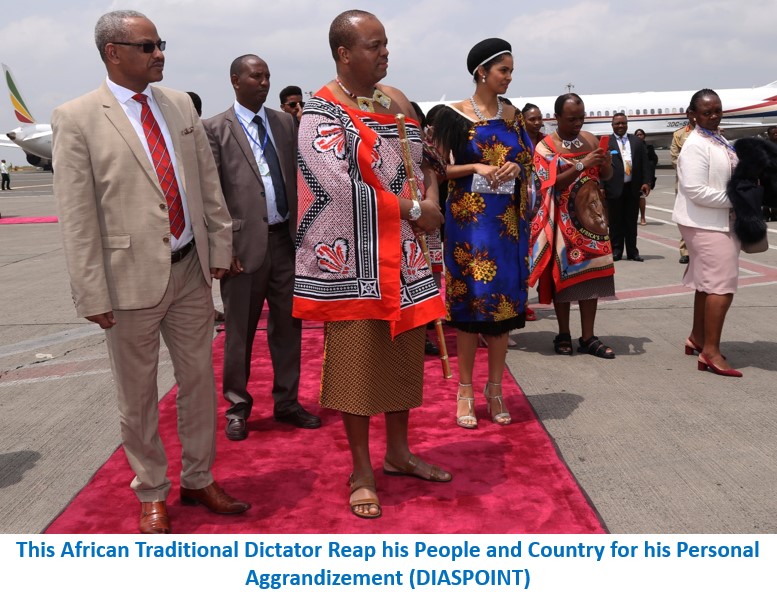Africa’s last absolute monarchy Eswatini votes for parliament
Post By Diaspoint | September 30, 2023

Candidates were nominated during village councils by traditional chiefs close to the king
Voters in Eswatini, Africa’s last absolute monarchy, cast their ballots for legislative elections that despite recent – and deadly – pro-democracy protests are unlikely to change the political scenery in the tightly controlled kingdom.
Some whispered “democracy” on Friday as they lined up outside schools and churches turned into polling stations – but without much conviction.
“We need roads, our streets are dirty, and we need people to come collect our garbage,” said Busisiwe Matsebula, 75, as she waited outside a voting station in the capital, Mbabane, wearing a traditional dress and a scarf over her head.
Polls opened at 0500 GMT and will close at 1700 GMT.
More than 500,000 people are registered to vote in the impoverished southern African nation, where King Mswati III wields absolute power.
Voters are to choose 59 members of the lower house of parliament, which plays only an advisory role to the monarch.
Political parties are banned
The results, to be announced within a few days, are seen as a foregone conclusion by the opposition, which has largely called for a boycott of the vote.
“They are saying that there are elections that are free and fair (but) there is nothing like that,” said Sakhile Nxumalo, 28, who heads the Swaziland Youth Congress, the youth wing of a banned pro-democracy party.
“We don’t take this election seriously because they serve the interests of only a few.”
Political parties are banned in the landlocked country between South Africa and Mozambique, and lawmakers cannot be affiliated with political groups.
The constitution emphasises “individual merit” as the basis for selecting MPs. While it allows for freedom of association, opposition groupings are often run from abroad.
Read More from original source
